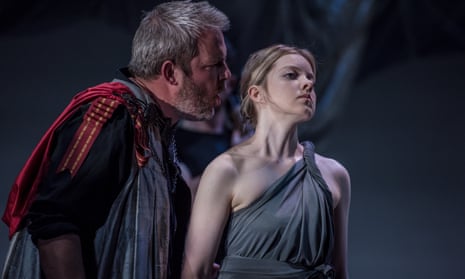Antonio Caldara was just another composer in the history of the Italian baroque until the release of a recording of one of his large-scale choral works became an unexpected hit 20 years ago. That work, Maddalena ai Piedi di Cristo, was composed in Venice, where Caldara (1670-1736) began his career, and where he became one of the most prolific and celebrated composers of oratorios of his time.
But after spells in Barcelona and Rome, Caldara spent the last two decades of his life in Vienna, becoming court composer to the Holy Roman Emperor Charles VI. He continued to provide music for the liturgy, but also composed much more opera, producing around 60 stage works during his tenure there, mostly full-scale works on which he collaborated with the two great librettists of that time, Pietro Metastasio and Apostolo Zeno.
Nowadays, Caldara’s operas are almost entirely forgotten. La Serenissima’s revival for Buxton international festival is one of them, Lucio Papirio Dittatore, was almost certainly the first time the work had been staged in Britain, and possibly the first modern outing for any Caldara opera here. Composed in 1719 for the emperor’s name-day to a text by Zeno that is crammed with historical detail, it is set in the early days of Rome, when Lucio Papirio was the city state’s dictator. It’s a typical baroque story of jealousy and false persecution, which ends happily with a celebration of Lucio’s magnanimity – de rigueur for any work written as a tribute to an emperor.
In many respects, it’s a stereotypical opera seria, though it does intersperse its succession of florid arias and recitative with some rich choruses, and orchestral writing that makes considerable use of woodwind and trumpets and drums as well as the usual strings. Getting it on to the stage has clearly been a labour of love for La Serenissima and its director, Adrian Chandler. The production is directed unfussily by Mark Burns, with designs and costumes by Kitty Callister that have just enough to place the action historically. The cast, led by tenor Robert Murray as Lucio, counter-tenors William Towers as his advisor Marco Fabio and Owen Willetts as Marco’s son Quinto, and Elizabeth Karani and Eleanor Dennis as the lovers Rutilia and Cominio, all cope heroically with the coloratura challenges set by Caldara’s score.
At Buxton Opera House on 13 and 18 July. Buxton international festival runs until 21 July.

Comments (…)
Sign in or create your Guardian account to join the discussion